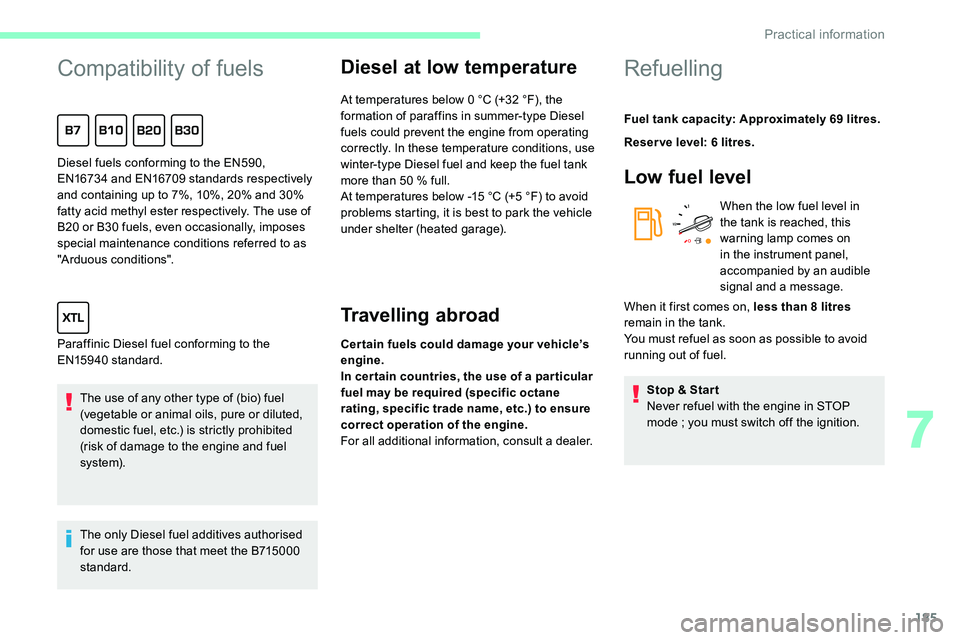185
Compatibility of fuels
The use of any other type of (bio) fuel
(vegetable or animal oils, pure or diluted,
domestic fuel, etc.) is strictly prohibited
(risk of damage to the engine and fuel
syste m).
The only Diesel fuel additives authorised
for use are those that meet the B715000
standard.
Diesel at low temperature
At temperatures below 0 °C (+32 °F), the
f ormation of paraffins in summer-type Diesel
fuels could prevent the engine from operating
correctly. In these temperature conditions, use
winter-type Diesel fuel and keep the fuel tank
more than 50
% full.
At temperatures below -15
°C (+5 °F) to avoid
problems starting, it is best to park the vehicle
under shelter (heated garage).
Travelling abroad
Cer tain fuels could damage your vehicle’s
engine.
In cer tain countries, the use of a par ticular
fuel may be required (specific octane
rating, specific trade name, etc.) to ensure
correct operation of the engine.
For all additional information, consult a dealer.
Diesel fuels conforming to the EN590,
EN16734 and EN16709 standards respectively
and containing up to 7%, 10%, 20% and 30%
fatty acid methyl ester respectively. The use of
B20 or B30 fuels, even occasionally, imposes
special maintenance conditions referred to as
"Arduous conditions".
Paraffinic Diesel fuel conforming to the
EN15940 standard.
Refuelling
Fuel tank capacity: Approximately 69 litres.
R eser ve level: 6 litres.
Low fuel level
When the low fuel level in
the tank is reached, this
warning lamp comes on
in the instrument panel,
accompanied by an audible
signal and a message.
Stop & Star t
Never refuel with the engine in STOP
mode
; you must switch off the ignition.
When it first comes on, less than 8
litres
remain in the tank.
You must refuel as soon as possible to avoid
running out of fuel.
7
Practical information
